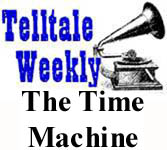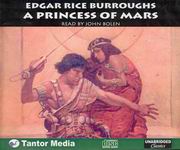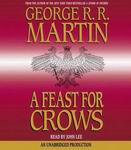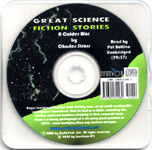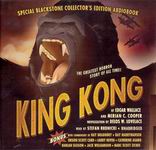
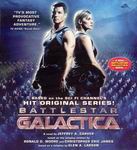 Battlestar Galactica
Battlestar Galactica
By Jeffrey A. Carver, based on the teleplay written by Ronald D. Moore and Christopher Eric James, based on a teleplay by Glen A. Larson
Read by Jonathan Davis
4 CD’s – 4 hours [ABRIDGED]
Publisher: Audio Renaissance
Published: 2005
Themes: / Science Fiction / War / Robots / Military / Government / Space Travel / Mythology / Religion /
Has anyone else noticed how good television has become during the past ten years? Well, 13 years. In 1993 Babylon 5 first aired, ushering in a new wave of science fiction and fantasy television that is both smart and damned entertaining. Following B5 was Joss Whedon’s Buffy the Vampire Slayer and Firefly. Many would put Farscape and Stargate in the same category. I haven’t seen enough of either to make that judgment. We could quibble about the list of this new wave all we want, but currently at the crest of that wave is the Sci-Fi Channel’s Battlestar Galactica, which is, without doubt, the best science fiction show currently in production.
This audiobook is an abridgement of the novelization of the first Battlestar Galactica show, which was a 4-hour mini-series that originally ran in 2002. I admit that even typing that makes me wince. An abridgement of the novelization of a television show. How much farther from Shakespeare can a person get? Not exactly high falutin culture here.
But this story is edgy, tense, and complex. It opens with a complacent human race that has gotten used to life without their enemy, the Cylons. The Cylons were human-built machines that rebelled, then accepted an armistice agreement around 40 years before the beginning of this audiobook, which is primarily about the sudden unexpected attack on humanity by the Cylons. The attack leaves the Battlestar Galactica as one of the very few ships that survives, and the immediate aftermath sets up several storylines that are followed in the television series.
Jonathan Davis, who keeps pretty busy with the many Star Wars audio titles, narrates, and does his typical and excellent job with it.
I’m a fan of this series, and was happy to receive this audiobook. Though the audio offers nothing new over the miniseries itself, it was an enjoyable way to experience the story while driving. I’m not sure if Audio Renaissance plans to continue releasing Battlestar Galactica titles, but because of the nature of the series, they would have to release every episode since each one is dependant on what takes place before.
Posted by Scott D. Danielson
